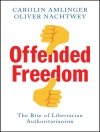The Inclusion of the Other contains Habermas’s most recent
work in political theory and political philosophy. Here Habermas
picks up some of the central themes of Between Facts and
Norms and elaborates them in relation to current political
debates.
One of the distinctive features of Habermas’s work has been its
approach to the problem of political legitimacy through a sustained
reflection on the dual legitimating and regulating function of
modern legal systems. Extending his discourse theory of normative
validity to the legal-political domain, Habermas has defended a
proceduralist conception of deliberative democracy in which the
burden of legitimating state power is borne by informal and legally
institutionalized processes of political deliberation. Its guiding
intuition is the radical democratic idea that there is an internal
relation between the rule of law and popular sovereignty. In these
essays he brings this discursive and proceduralist analysis of
political legitimacy to bear on such urgent contemporary issues as
the enduring legacy of the welfare state, the future of the nation
state, and the prospects of a global politics of human rights.
This book will be essential reading for students and academics
in sociology and social theory, politics and political theory,
philosophy and the social sciences generally.
Mục lục
Editor’s Introduction.
Translator’s Note. Preface.
Part I: How Rational is the Authority of the Ought?:.
1. A Genealogical Analysis of the Cognitive Content of
Morality.
Part II: Political Liberalism: A Debate with John Rawls:
.
2. Reconciliation through the Public Use of Reason.
3.’Reasonable’ versus ‘True, ‘ or the Morality of Worldviews.
Part III: Is There a Future for the Nation-State? .
4. The European Nation-State: On the Past and Future of
Sovereignty and Citizenship.
5. On the Relation between the Nation, The Rule of Law, and
Democracy.
6. Does Europe Need a Constitution?Response to Dieter Grimm.
Part IV: Human Rights: Global and Internal.
7. Kant’s Idea of Perpetual Peace: At Two Hundred Years’
Historical Remove.
8. Struggles for Recognition in the Democratic Constitutional
State.
Part V: What Is Meant by ‘Deliberative Politics’?:.
9. Three Normative Models of Democracy.
10. On the Internal Relation between the Rule of Law and
Democracy.
Notes.
Index.












